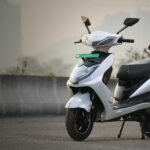The popularity of electric vehicles is cruising upwards, non-stop. That being said, they have a few speed breakers like certifications, government regulations, testing and the like before they are finally introduced in the market. Bike manufacturers and dealers might often find all these testing and certification processes quite overwhelming.
The sheer cost of these certifications and lack of knowledge about them can make matters worse. To add to it, there are numerous brands that are coming up with newer versions of electric bikes. In this case, keeping up with the trend and making sure that all the bikes have essential certifications is a must for every dealer. And to simplify it for you, we have covered two of the most preferred test agencies in India, which are ICAT and ARAI.
Why is automotive regulation needed?
Before moving to ICAT and ARAI, let’s understand why exactly these regulations are needed. Although they seem to be a hassle, not having these certifications for EVs is a road that goes downhill! Literally!
Automotive regulations are in place for two main reasons:
- Safety of users and pedestrians from accidents of any kind
- Safety of the environment from harmful vehicular emissions
Did you know? The most number of vehicular accident deaths in the world are recorded in India. In 2018, more than 1.5 lakh people died in road accidents, and the numbers have kept rising ever since. In this case, imagine a situation where a bike doesn’t stop or behave in the way the driver intends or has no measures for crash compliance? The results can be fatal. And that’s exactly where the automobile regulations and certifications come into the picture.
One important thing to consider is that, with the evolution in the automobile sector, the regulations and certifications of the vehicles have also changed. Earlier with petrol bikes, their fuel consumption, mileage, engine performance and safety were measured. Now with electric vehicles, their power consumption, range, battery life, performance and safety are measured. These aspects underline the need for automotive regulations.
What are ICAT and ARAI?
ICAT or International Center for Automotive Technology and ARAI, i.e. Automotive Research Association of India, are both instrumental in conducting various tests on the EVs before they can be introduced in the market. ARAI is the leading automotive research and development organisation in India that’s set up by the Automotive Industry with the Government of India. Being an autonomous body, it’s affiliated with the Ministry of Heavy Industries. It’s one of the prime testing and certification agencies acknowledged by the Government of India under Rule 126 of the Central Motor Vehicle Rules, 1989.
Both these agencies conduct homologation wherein the EVs are tested on the basis of their safety and performance before they go into production. Apart from homologation, they are also involved in research and development, testing, certification, and framing of vehicle regulations.
Role of ICAT and ARAI in electric vehicle certification
ICAT and ARAI play a significant role in the EV standardisation and certification process. In addition, these agencies are also involved in extensive research on many aspects of EVs, especially related to their quality and performance. Furthermore, they create various awareness programs and training workshops for stakeholders in the e-mobility segment, including the ones who are involved in the nascent stage of EV production. They are instrumental in assuring safe, more efficient, and reliable electric vehicles.
ARAI assists electric vehicles with the following functions:
- Battery performance and safety testing
- Electric motor characterisation
- Vehicle performance and homologation as per CMVR on a chassis dynamometer and test tracks
- Battery testing and certification
- Electric vehicle development
- Rechargeable energy storage system (RESS) evaluation using CAE
- Four poster durability of electric vehicles in the climatic chamber for structural adequacy, etc.
That’s not all! The standardisation and certification are decided on the vehicle’s segment, class, specification and performance. The most common tests to decide this are as follows:
- Water impression tests
- Nail penetration tests for batteries
- Crash test
- Pass by noise
- Gradability
- Norms for fuel efficiency
Conclusion
The EVs that pass all these tests and are certified by ICAT or ARAI can be considered safe and efficient. That means you can sell it to your customers stress-free! And when it comes to choosing the best electric two-wheelers in Pune, iVOOMi offers a wide range of e-bikes that are RTO approved and have an ICAT certificate. Not just that! These bikes are packed with some awesome features like swappable batteries, a long riding range of 90+ km, quick charging within 3-4 hours, a larger boot space, anti-theft feature, and much more! These bikes are all set to help riders Go Befikaar on the roads. Are you ready to Go Befikar with your sales too?
Get in touch with us today!


